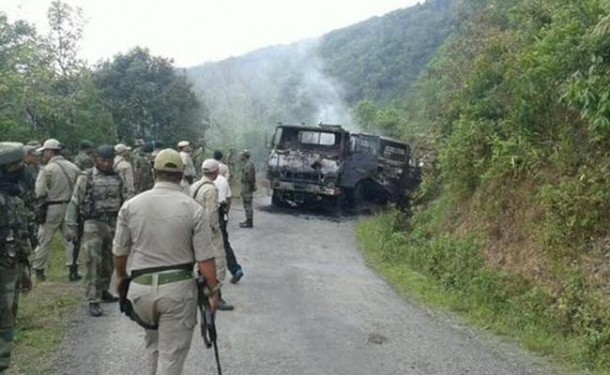By Rajeev Sharma*
As the Indian armed forces, with excellent inputs from the intelligence agencies, were carrying out a raid on insurgent camps along the India-Myanmarese border, the pain was felt more acutely in Rawalpindi. The Generals saw it as a threatening gesture by the Indian forces.
It might seem a misplaced and strange reaction from Pakistan, but it was not. Pakistan’s worry is not about Myanmar or the insurgents holding camp there but their own problem of hosting all kinds of terrorist and insurgent groups at home. Their fear is not that India will plan such a raid on the terrorist training camps in Pakistan occupied Kashmir and other places near the border.
The Generals know that India was not given to irrational and spasmodic military actions. They realize that India was aware how irrational the Generals could be and their low threshold for international norms and conventions. Their real worry is the change in the mindset of the Indian leadership and the new found acceptance of taking risks in dealing with recalcitrant elements harming India’s interest.
There were two messages for Pakistan in the Myanmarese operations. One was that you cannot kill our soldiers and get away with it. Second was that the revenge will be swift and not easily predictable. The second part is that worries the Generals most. Their memory of 1971 is still afresh, with Prime Minister Narendra Modi reminding them of their treachery, and defeat, at the hands of a ragtag army of Bangladeshi freedom fighters. The Prime Minister’s statement has really rankled them and it is reflected in the sound and fury emanating from the GHQ Rawalpindi.
It is easy to pinpoint their cause of worry and why the Generals reacted with alarm at the Indian forces raiding insurgent camps in Myanmar. They are not sure what actions would India take if there was an attack on the Indian forces or India emanating from Pakistan. One thing is clear: India will not sit quiet, and the revenge will be swift and decisive and public. But what will India do?
The Generals are acutely aware that their country has too many faultlines, too many borders open to intervention of various kinds. Their western neighbour is not very happy with them for hosting the Taliban. The Taliban, living inside, are not happy with the Generals for not keeping their promise of taking over Kabul.
The Baloch are not happy with the Generals. So are the Sindhis and Baltis and Pashtuns, all of whom have suffered the brunt of the brute military force. The Shias are not happy, and not Ahmadis, Christians and Hindus. So today, within Pakistan, there are more disgruntled elements to deal with than in the past. On the borders, India and Afghanistan, two countries with deep relationship, are wary of the Generals in Rawalpindi.
The Americans are not sure how the Generals would run once they leave Afghanistan in toto, at least not so soon. The Chinese are equally skeptical about their all-weather ally of keeping its promise of clearing the way for the grand plans of running freight trucks and cars across South Asia towards the Middle East and Europe in the near future.
Inside home, different terrorist groups are making life difficult for the Generals. Their much publicized operations have failed to stem the terrorist killings; in fact these operations have created more enemies within in the past several years. The Generals have also not done much to help the people in meeting their basic demands, telling them that war was a panacea for all their ills and not jobs, food, power and peace.
With their public image at such a low, both within and outside, any Indian action to Pakistani attacks would sink them forever, much like 1971. They are worried that they cannot blame the Indian security agencies for every attack or incident within Pakistan. It would be a telling admission of the army’s failure.
*The writer is an independent journalist and a strategic analyst who tweets @Kishkindha.
